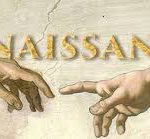As geopolitical tensions rise worldwide, Greece is stepping up as a diplomatic bridge in 2025. Situated strategically between Europe, Asia, and Africa, Greece has long served as a crossroads of civilizations. Today, it is leveraging that position to mediate disputes, strengthen EU cohesion, and advance stability in the Eastern Mediterranean.
One of the central challenges is the ongoing dispute with Turkey. Greece continues to pursue diplomacy while modernizing its defense forces in collaboration with NATO allies. The government is advocating for dialogue, confidence-building measures, and EU involvement to prevent escalation.
Beyond regional disputes, Greece is also playing a role in broader European diplomacy. It has emerged as a strong voice for EU unity, especially in discussions on energy security and migration. By promoting Mediterranean cooperation, Greece is positioning itself as a stabilizer in times of fragmentation.
Internationally, Greece is strengthening ties with the United States, Middle Eastern countries, and Asian economies. Joint initiatives on shipping, energy, and technology reflect Greece’s expanding global role. At the same time, cultural diplomacy—through heritage, art, and sports—remains a tool for soft power.
FAQs
Q1: How is Greece handling disputes with Turkey?
A1: By pursuing dialogue and strengthening defense in collaboration with NATO, while keeping diplomacy as a priority.
Q2: What role does Greece play within the EU?
A2: Greece is advocating for EU cohesion on migration, climate change, and energy security.
Q3: Is Greece expanding global partnerships?
A3: Yes, Greece is deepening ties with the U.S., Middle East, and Asia across energy, shipping, and cultural sectors.
Q4: How does cultural diplomacy help Greece?
A4: Cultural heritage, art, and tourism enhance Greece’s soft power and strengthen international relationships.
Q5: What makes Greece important in global diplomacy?
A5: Its geographic location, EU membership, and historical legacy make Greece a vital mediator and strategic partner.
Conclusion
In 2025, Greece is embracing a greater diplomatic role by balancing regional disputes with Turkey, strengthening EU unity, and building global partnerships. Its ability to combine hard security with cultural diplomacy underscores its importance as a stabilizing force. Greece’s active diplomacy not only enhances its global influence but also contributes to peace and cooperation in an increasingly unstable world.












